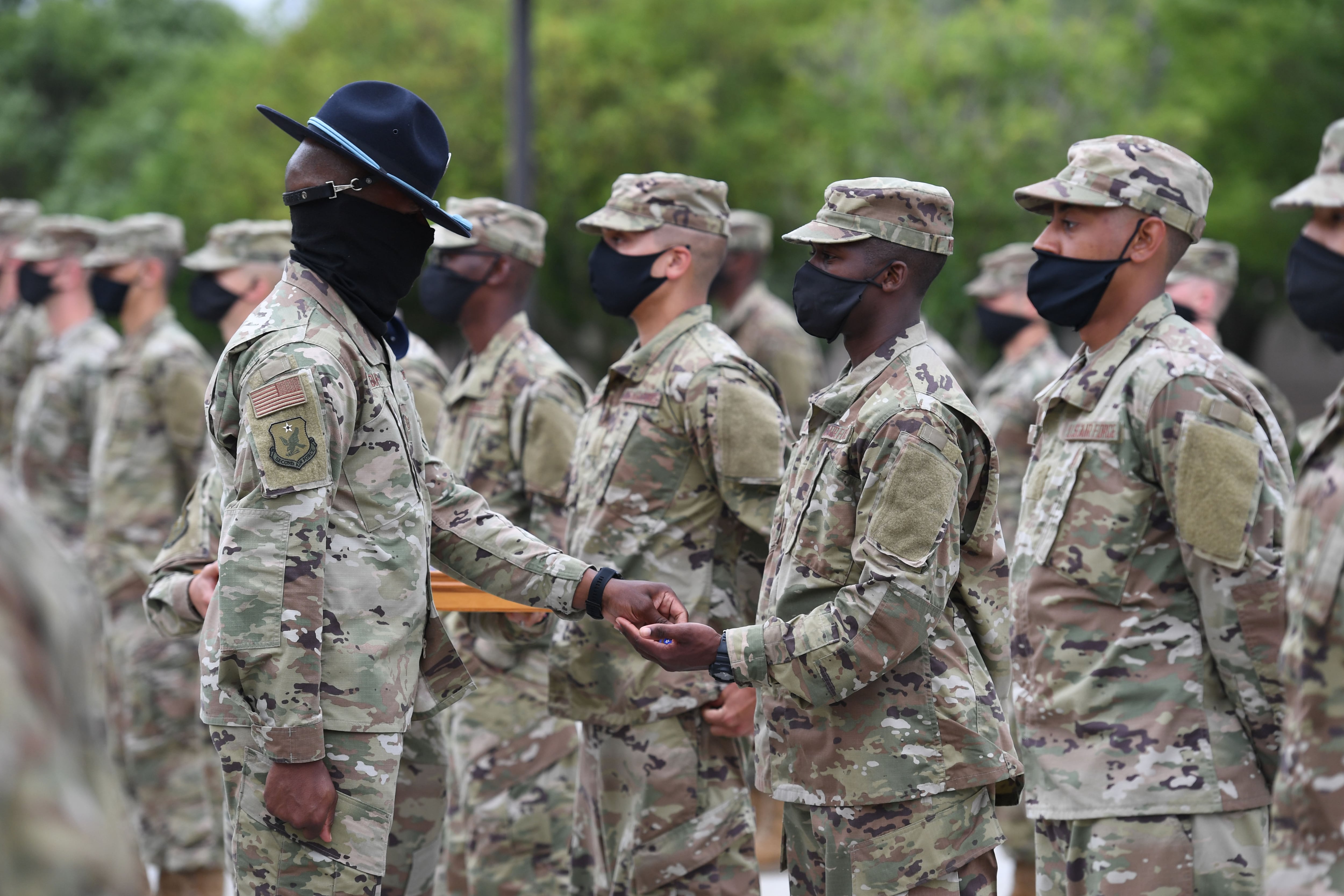The Pentagon has rescinded a policy released earlier this month that prevented recruits who had contracted COVID-19 from enlisting or earning a military commission, the Defense Department’s top manpower official told reporters Thursday.
What started as an all-out ban evolved into barring those who had been hospitalized after contracting the virus. And now it’s changed again. Matthew Donovan, defense under secretary for personnel and readiness, said during the press conference that he had canceled that guidance in favor of reverting back to pre-coronavirus accessions standards.
“At the same time, we’re having our health professionals and our doctors and researchers take a look at that and come up with any recommendations that they’ll provide to me and the [defense] secretary,” he said, adding that their final decision is forthcoming.
In the meantime, he said, the policy is to look at each recruit on a case-by-case basis. That means a full work-up by military entrance processing station doctors, with time of diagnosis, complications and recovery taken into account.
If there are any indications that a recruit hasn’t fully cleared the virus or is still suffering from complications, they could be prevented from moving on to initial entry training.
Donovan added that he had spent part of the morning on a call with Senate Armed Services Committee members concerned about the ban, after multiple lawmakers voiced concerns about the effects it would have on recruiting.
“If an individual can pass the Military Entrance Processing Station screening process ― despite a hospitalization for coronavirus ― they should be allowed to serve,” Rep. Andy Biggs, R-Arizona, wrote to Defense Secretary Mark Esper on May 12. “I agree that more research is needed to study the long-term effects of coronavirus on the human body. However, I do not think that the lack of research available warrants permanently disqualifying patriotic Americans from serving in the military.”
As public health experts and researchers race to find treatments, develop and vaccine and generally study the latest coronavirus, there is still a dearth of information on its short- and long-term effects.
RELATED

For the military’s purposes, whether it causes irreparable lung damage could figure heavily in terms of combat readiness. And as the services brace for a resurgence in infections, it’s still unknown whether COVID-19 antibodies provide immunity to re-infection, or could perhaps make someone more susceptible to a second round of the disease.
“It sort of depends,” he said. “Any infectious disease, we want to make sure they’re not infectious at the time. There’s a lot of unknowns about this virus right now. Are ther are there any long-term, lasting effects? That’s what our health care professionals are looking at right now.”
Meghann Myers is the Pentagon bureau chief at Military Times. She covers operations, policy, personnel, leadership and other issues affecting service members.





